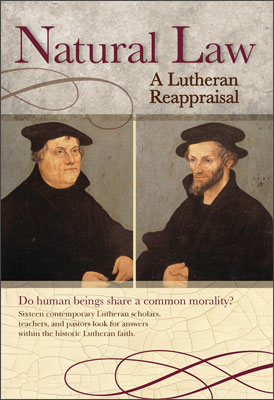Author’s Note: The following article originated as a much-need impromptu morning devotion in my home. Does your home have a similar need?
The Quarrel
Why do children fight with one another? Why does a brother yell at his sister? Why does a sister use a mean-spirited tone of voice even when saying “please,” hypocritically, to her brother? Why can’t they remember to share, to take turns, to give each other more space—to do any one of the several things their parents have time and again reminded them to do?
Do Daddy and Mommy yell at each other? Do they shout, “That’s mine!” (In this family, thankfully not.) Why then do the children do this? How can they learn to stop?
Quarreling is a fruit of sin, not a fruit of faith. One person’s sin starts the fight, but another person’s sin continues the fight. In Proverbs 15:1, we read:
A soft answer turns away wrath,
but a harsh word stirs up anger.
Harsh words, unkind actions, even nice words spoken with a mean tone of voice, do not help the problem; they only stir up anger all the more.
The Solution
A soft answer can turn away wrath.
When one sibling says or does something unkind to another sibling, the second sibling can find in Luther’s explanation to the Eighth Commandment a recipe for improving the situation: “takes his words and actions in the kindest possible way.” Respond not in vengeance, but in patience. Avoid the harsh words that stir up anger and choose the soft answer that turns away wrath. Admittedly, all of this is easier said than done. But it can be done and it has been done, and this simple fact established a lasting impact for the good.
The Reality
One very difficult time, someone gave a very soft answer. It did not come easily. People were yelling at this man. Some of them hit him. Others spat straight into face. Their hearts boiled with wrath. Their words fumed with anger. Their actions turned murderous. He received the brunt of all their frustrations.
How did he respond?
On the inside, it seems that he was recalling that “a soft answer turns away wrath.” Outwardly, he gave the softest of all answers. He remained silent. He quietly received the wrath of others. And then he took that wrath with him to the cross.
This quiet Man with the soft answer was Jesus. “Father, forgive them,” He prayed while dying on that cross. Jesus took our anger and wrath to the cross, too. His soft answer turns away our wrath, it even turns away the Father’s righteous wrath concerning our sins—forever. Because He died in our place, we have forgiveness for every angry thought or harsh word or wrathful action ever committed. Because He rose, we have new life in Him. We are a new creation in Christ Jesus, empowered now to give a soft answer when others come to us in wrath, thereby proclaiming to them the love that God has showered upon us. Jesus’ soft answer ultimately turns away all wrath. As children of God, our soft answers—the Holy Spirit acting in us and through us—can turn away the wrath that creeps into our homes when husbands and wives, or parents and children, get sucked into what Emerson Eggerich’s in his excellent book Love and Respect, calls the “crazy cycle.”
How the Crazy Cycle Begins and Ends
The crazy cycle begins when one person in the relationship perceives (whether accurately or not) that the other person is speaking or acting unkindly toward him or her; in response to this perception of unkindness, the person is tempted to respond in a vengeful manner with an equal (or greater) dose of unkindness. Then, the other person responds in like manner, often upping the ante, and hence fueling a continual cycle of wrath. However, such quarreling can be put to a stop, and in fact prevented from ever starting, if one of these people would offer that “soft answer” that “turns away wrath.” Unconditional love breaks the crazy cycle. Jesus has so done for us; Jesus has sent us His Holy Spirit in order that we may pass this on to others.

Postscript: A Hebrew Word-Study
The translation of Proverbs 15:1 used above is the New King James Version, which the English Standard Version follows, in this particular verse, word for word. An exploration of underlying Hebrew words provides a richer understanding:
A (delicate, tender, contrite) answer turns away (heat, rage, venom),
but a (grievous, vexing) word stirs up (the nose!).
As for that last term, it is humorous that to be “angry” in Hebrew literally means to be fuming at the “nose.” Perhaps such a language lesson can transform the children’s quarreling into giggles as they realize how “foolish” (a common word in the Book of Proverbs) it is to “fume at the nose” or act like “venomous snakes” toward one another, rather than waiting patiently, taking turns, and sharing.
Giggles. Hugs. Kisses. A gentle answer, indeed.
Dr. Ryan C. MacPherson is the founding president of The Hausvater Project. He lives with his wife Marie and their homeschool children in Casper, Wyoming, where he serves as Academic Dean and Professor of History and Philosophy at Luther Classical College. He previously taught American history, history of science, and bioethics at Bethany Lutheran College, 2003–2023. For more information, visit www.ryancmacpherson.com.




